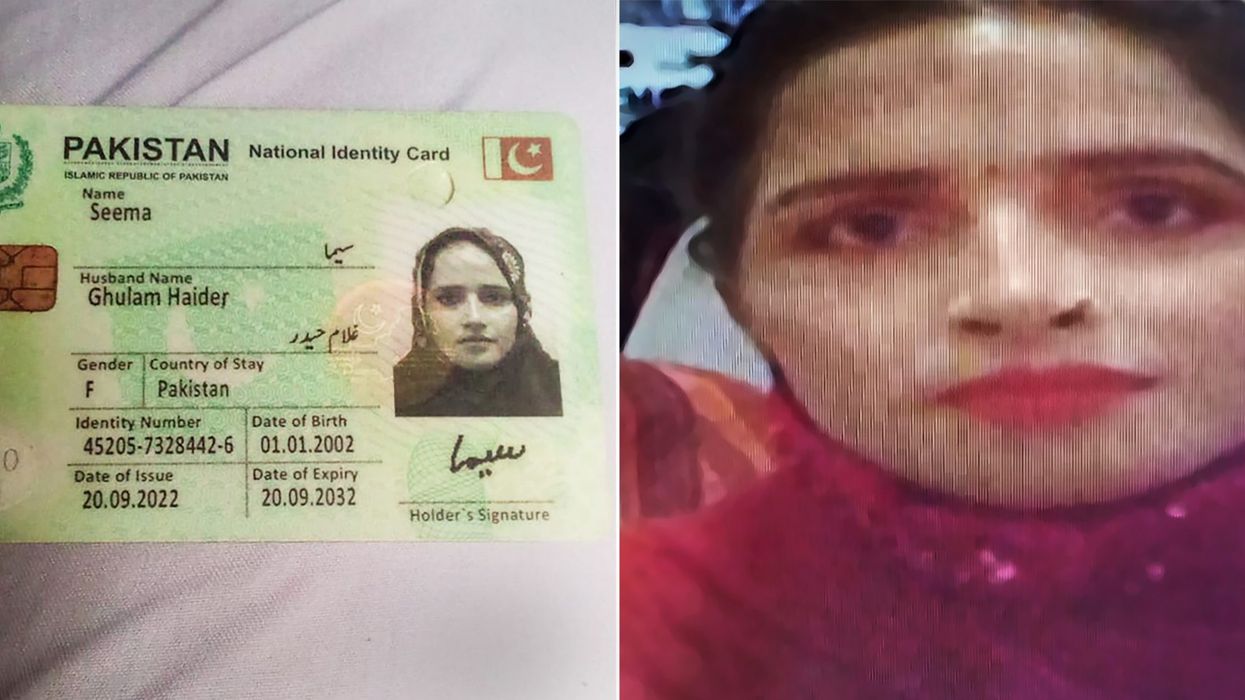Seema Haider, a Pakistani citizen who had entered India illegally in May and has been residing with her partner in the country, was apprehended by the Uttar Pradesh Police's Anti-Terrorist Squad (ATS) on Tuesday (18).
The agency conducted a second day of questioning, lasting for over nine hours.
Accompanying her during the investigation were her Indian partner, Sachin Meena, and his father, Netrapal Singh.
The authorities picked them up from their residence in the Rabupura area of Greater Noida at approximately 8.30 am and subsequently transported them to the ATS's unit office in Noida by 10 am, where the interrogation continued until late evening.
Around 8.15 pm, Seema, Sachin, and Netrapal were allowed to leave the ATS office.
As of now, there has been no official statement from the ATS regarding any further questioning or developments in the case.
The cross-border couple, Seema (30) and Sachin (22), experienced their first interrogation by the UP ATS on Monday (17) at the agency's Noida office.
After the questioning, they were allowed to return home around 10.30 pm.
Previously, on July 4, the local police in Greater Noida had arrested Haider and Meena. However, they were later granted bail by a court on July 7.
An officer from the Uttar Pradesh ATS explained that the questioning process was crucial for matters pertaining to national security.
Depending on the inquiry's outcome, the couple "may or may not be arrested" in connection with this sensitive issue.
Separately, the local police are conducting its investigation into the case filed under the Foreigners Act. As of now, they are yet to file a chargesheet in the matter.
In May, Seema entered India with her four children by bus from Nepal, with the intention of living with her partner, Sachin.
The couple, who claim to have gotten married in Nepal earlier this year, first connected in 2019 through the online game PUBG.
On July 4, Seema was taken into custody by the local police for illegally entering India, while Sachin was detained on charges of harbouring illegal immigrants.
However, a local court granted bail to both Seema and Sachin on July 7, permitting them to live together along with Seema's four children in a house situated in the Rabupura area.
During her interactions with the media, Seema expressed her desire not to return to Pakistan and instead voiced her wish to continue living with Sachin. She also stated that she has converted to Hinduism.
Back in Pakistan, the family and neighbours of Seema told a PTI correspondent that they do not wish for her to return.
Meanwhile, in the Southern Sindh province, a gang of dacoits carried out an attack on a Hindu temple using rocket launchers on Sunday.
According to a police officer in the region, the assailants targeted the small temple and nearby homes belonging to Hindus in the Kashmore area of Sindh., There were no casualties reported in the attack.
This incident occurred shortly after dacoits in the Kashmore and Ghotki riverine areas issued threats of violence against Hindu places of worship and community members as a response to Seema and Sachin's PUBG love story.
According to a media report on Monday, Pakistan's intelligence agencies have communicated to the government that the primary reason for the mother of four sneaking into India was "love."
The woman had formed a friendship with a Hindu man through an online game platform, which ultimately led her to choose to live with him in India.
(With inputs from PTI)




